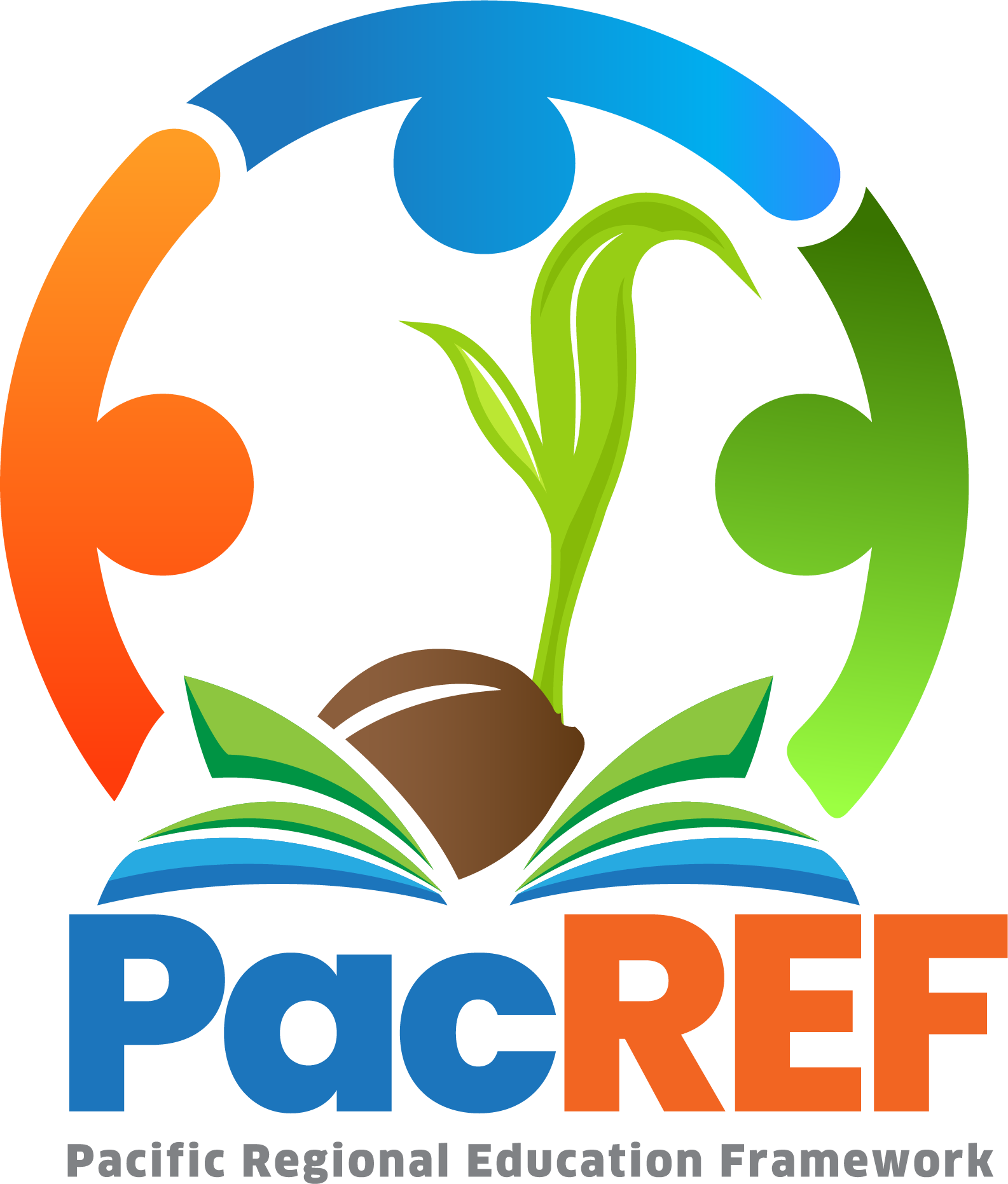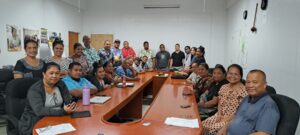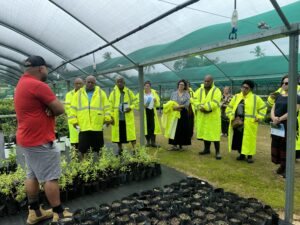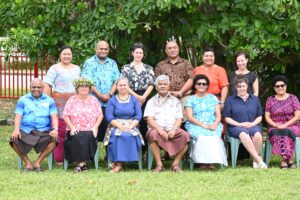After months of online engagement, more than 50 education experts from 15 Pacific Island countries met in Nadi, Fiji from 30 August to 01 September 2023 to co-create and pre-validate the Pacific Regional Framework for All-life Skills. As part of the Pacific Regional Education Framework (PacREF) and led by UNESCO with support from UNICEF, the regional workshop is a key milestone for Pacific Island countries to take stock of skills, values and competencies taught in the classroom and to agree on a small set of skills beyond literacy and numeracy skills, that children and youth need to succeed in life, school and employment in the 21st century.
The term ‘all-life skills’ was coined by Pacific education leaders during the Conference of Education Ministers (CPEM) in March 2023, who reiterated the need to focus on “all-life skills” for a richness of development, ensuring that children and young people receive value-based education and skills to be resilient, with skills like persistence, self-awareness, management and problem solving; fully prepared to engage and succeed in academic, vocational, community-building and professional activity through skills like research, communication, social and entrepreneurial skills; and prepared to assess information and options and to make positive decisions for themselves and their interactions with the world around them through critical thinking, proactivity, confidence and agency.
The three-day workshop allowed participants to review the 78 individual all-life skills identified prior to the regional gathering during the mapping of relevant all-life skills in national Pacific curricula, teacher trainings, and learning assessments and online interactions with the Ministries of Education Technical Working Group and Advisory Group. Through interactive and iterative group work, participants classified 45 possible All-Life Skills firmly based on validated skill selection criteria including impact, measurability, empirically grounded, culturally sensitive, malleable, balance and specificity.
“In the Pacific, we learn through observation and doing things but a lot of our doing is not recorded. […] Some skills should be part of our national strategies to ensure that future generations have access to information on these skills.” Workshop participant
During the workshop, participants from the three sub-regions Melanesia, Polynesia and Micronesia identified and unpacked Pacific ways of learning and doing as the foundation of the Pacific Regional All-life Skills Framework to ensure that learners in the Pacific are grounded in their cultures with values and ways of relating that help them engage, contribute and advance all forms of progress envisioned by their community.
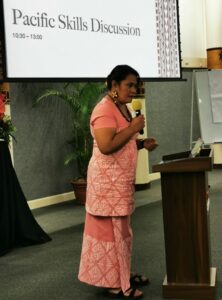
A great diversity of indigenous skills, values and knowledge systems were recorded during the workshop, ranging from Diya im Ukoj (RMI) which outlines the act of collaboration, to Te Raoi (Kiribati) which captures skills around conflict resolution, community collaboration, humanity, empathy, respect and unity through storytelling, Fakamomoatea (Tonga) which encompasses skills like observation, listening, questioning, recalling and predicting outcomes to take action, Akara Matatio (Cook Islands), the way of learning by listening and following, and Melasm a tekoi (Palau), the art of trying new things.
Teacher voices also guided the selection of All-Life Skills to be included in the Pacific Regional framework highlighting the need for digital skills, time management, communication, self-advocacy and self-care, decision-making and financial skills, cultural awareness and environmental protection skills, leadership and health literacy skills. By the end of the workshop, participants could agree on groupings of the identified skills to be featured in the Pacific Regional Framework for All-life Skills and guidance for education professionals across the region to infuse these skills in national curricula, teacher competency frameworks and training materials, and learning assessments. Additionally, participants reiterated the need to consciously document their indigenous skills, values and knowledge systems which are an essential part of the way of life into their national strategies, plans and policies.
‘The challenge of dealing with our diversity is not new to us. The purpose of this framework is to be a referencing framework. We won’t capture everything, but this framework should make it easier to capture our diversity’ Workshop participant.
The Pacific Framework for All-life Skills works towards Policy Area 1 goal of PacREF which aims to “embed curriculum and teaching programmes in the Pacific context that reflect Pacific values, cultures, traditional knowledge and skills that draw on the land that we live and exist upon and the ocean that surrounds and binds us all”.
The framework will be finalized by the end of 2023, ready to be brought to life in all 15 PacREF member countries.
(Article provided by UNESCO)
